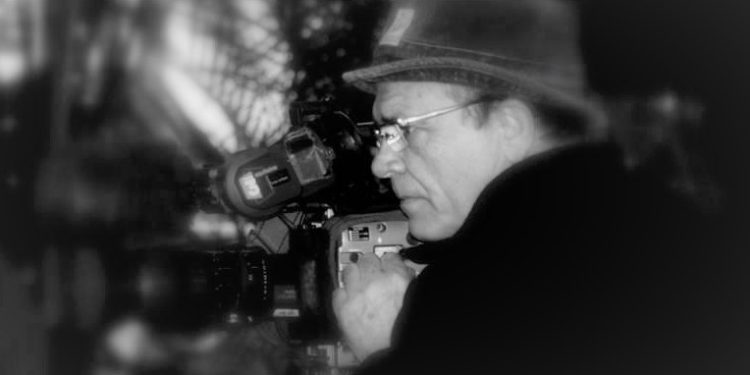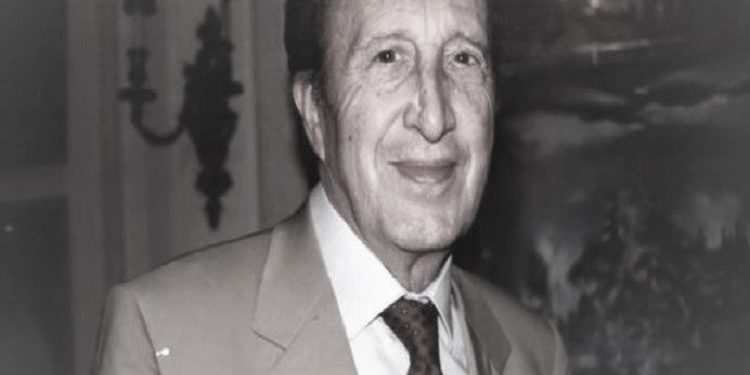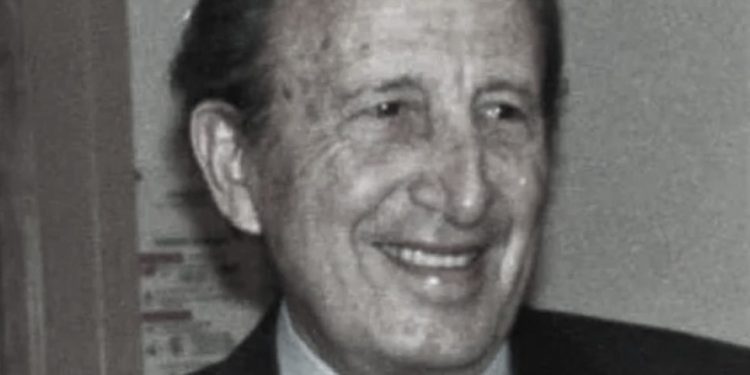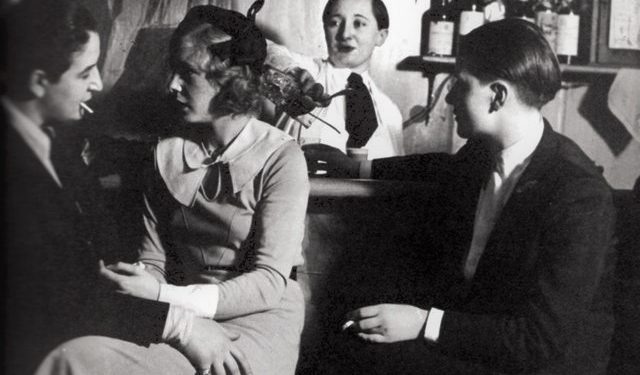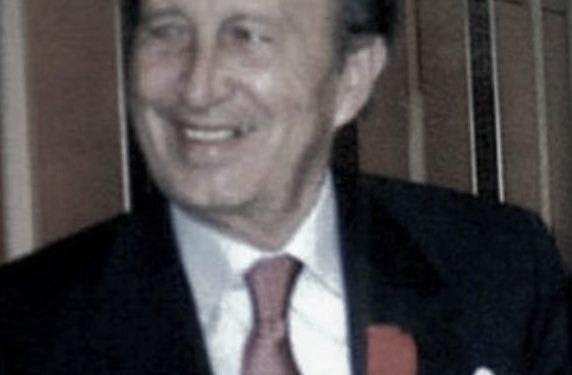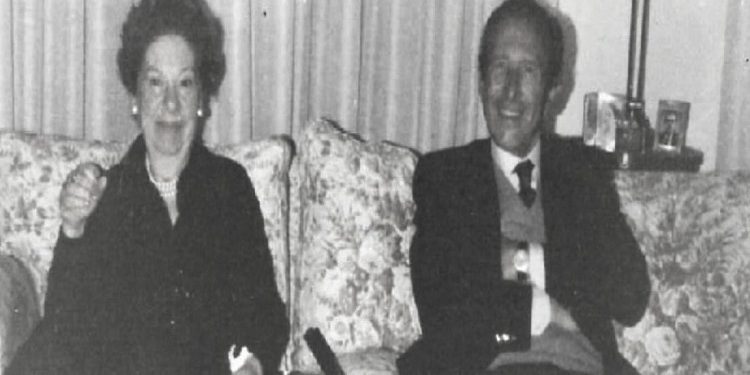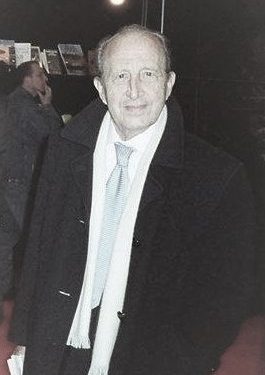By Vasil Qesari
Part nineteen
Memorie.al/ The overthrow of the great totalitarian edifice in Albania would leave behind, not only the change of the system, accompanied by lots of hopes, mirages and cries of happiness but, unfortunately, also many wounds, dramas, victims, dust, milk and disappointments from the most different. Ten years and more after that event, which deeply shook society, completely overturning many previous codes, rules and concepts, people still continue to ask themselves such questions as: What really happened in society Albanian, during the last 50 years of the dictatorship? How was it possible that the system managed to warp everything? Why did people accept it? What was the totalitarian logic of the transformation of society and the individual? How were the structures of totalitarian mechanisms conceived and functioning: propaganda, secret police and the exercise of the ideology of terror? How did it happen that among all the communist countries of Eastern Europe, Albania was considered an exception or a special case? Why did Enver Hoxha remain blindly, fanatically loyal to Stalin until the end, turning the country into a prison where violence, fear and purges continued until the end of the 80s? Why was the country so insanely isolated, locking people up between bunkers and barbed wire? Why, then, did all the above phenomena happen…?! The book “Post-scriptum for Dictatorship” does not claim to provide definitive answers to the above questions, or the complexity of the reasons that brought and maintained the totalitarian power in Albania. Nor is it a complete, deep and comprehensive fresco of the life and suffering that people experienced during that system. Its author, perhaps, has the merit that together with the retrospective view of the totalitarian period as well as the zeal of a passionate analyst, he has tried to turn his head back once again, to give not only his personal memories and opinions, but also to return once again to the vision of that era with the simple philosophy of preserving the Memory and supporting the Appeal to never forget the well-known maxim, that…the corpse’s nails and hair continue to grow even after death! Ten years or more after the great revolution, the book in question has current value and we hope it will be appreciated by the reader because, as an Albanian researcher also says… the greatest evil that can happen to a people comes when he fails to analyze his own past. An amnesic people are forced to be constantly neuropathic and repeat their painful experiences…!
The memories of Jusuf Vrion, or “elegant ghosts”!
“I often thought and said to myself that, if the danger escalated more, then I would really decide to leave. But, in the meantime, other thoughts, more courageous and dignified, kept me from being induced to make that decision. I thought that maybe the moment had come that we, the young people of my social category, had to take the risk for the creation of a real democratic movement…! But if that French officer named Cochet had made the proposal of escape to me two months after, when I had given up many illusions, I might have escaped an hour ago. But now and then, I was thinking of staying. But why? To organize a Democratic Movement? There were many who dreamed of something like this, but no one was ready to take on the risk of getting into that job. You can’t trust anyone! Let a single word lead you to the gallows! Of course, I was aware of a kind of passive resistance. But, at that time, in Albania, a Sakharov could not even be imagined. He would be eliminated on the spot as soon as he started uttering the first subversive phrases…”!
THE ROOM OF DEATH
It was Saturday, September 13, 1947, when two Security officers called him while he was waiting for someone, where the Skanderbeg monument stands today:
– “Is that you, Jusuf Vrioni? Come with us! We have some questions to ask…!
These were also the first words of the long and thoughtful ordeal that would last for many, many years. They pushed him into a jeep and took him to the underground cells of the Old Prison.
Why had he been arrested? What did you do?!
No one gave him explanations. Silence. Darkness. Then the scream and the scream. Next, someone was being tortured. In the cold cell where he was killed, there were five other detainees. They had spent time in the torture room or, in what were called otherwise, keeping the process – verbal before going to the judicial process. Overwhelmed by tension and anxiety, Vrion can only calm himself by bringing before his eyes the image of his mother, who does not yet know that she has been arrested. Then, remember the past, the years of youth. To his long dead father. Brother and sister left in the West. But also other friends, obviously. Then, like in a movie, the places where you spent part of your life come to mind: Paris, Rome, London, Berat, and Corfu as a child…!
The antechamber of death…!
This is what Jusuf Vrioni calls his cell. There, where they keep him chained day and night and torture him cruelly.
“When it came to the questioning session, I initially insisted that I didn’t know anything. Then, the insults began with the foulest words, accompanied by slaps, punches and kicks in the most delicate parts of the body. Then the torture methods were changed. They started hitting me with batons, continued with electric shocks, and ended by laying me on a bed called a “vest”. That kind of torture started with tying hands and feet and passing a beam between them. Then, in that cross-legged position, with no possibility of the slightest defense, the blows with sticks began back and forth, demanding that I confess. They did that torture method to me six times a week. But the most inhumane were those 15 days and 15 nights, when they hung me by my hands on the ceiling of the cell, throwing 30 or 35 kg around my neck chains. I had nowhere to stay. I could only touch the floor with my toes. Everything was calculated so that I wouldn’t lean anywhere. The questions they asked me were more in the direction of the British and American military missions, as well as about the relations I had with their personnel.
They wanted to know what information I had given them. Then, they tried to prove and prove my political activity during the so-called “democratic” elections. Who had I met? Who were the members of our “enemy” group? What was the purpose of our meetings…? I denied, admitting only one thing: our goal was to form a legal opposition according to the articles provided by the Electoral Law. The investigations continued from September to November and then I was transferred to another cell. Nearby, next to me, the writer Mitrush Kuteli was languishing, who from time to time recited verses from his poem “Kosova” to me in a low voice. After February 1948, the period of complete isolation begins for Vrioni, which lasts 27 months. In a cell, called that of Koçi Xoxes, he decides to end everything: “Exactly, in that cell, I tried to end my life by cutting the veins. But the only means by which I could do so were the soft metal soles of my slippers. So the attempt did not yield results. (I still have the cut marks on my knuckles to this day). The guards quickly intervened and bandaged my hands, while the doctor said that there was no danger to life. However, he ordered that the surveillance on me be strengthened and even more…!
With the sentence of June 29, 1950, Vrioni was sentenced to 15 years in prison, accused of being an agent of foreign secret services.
“The first visit to the prison, 34 months after the arrest, was that of the mother. Poor, under…! From beyond the bars, he tried to hold himself. But your eyes were full of tears. Like me on the other hand. He asked me about my health and then he told me about himself, about everything he had removed after my arrest. Initially, he was expelled from Tirana and he was able to take shelter with some cousins in Durrës. But, even there, they did not leave him alone. They had taken him to the villages of Fier, where he lived in a hut. No ceiling or floor. Directly on the clay…! And then, the terrible years in Albanian prisons follow. Suffering, forced labor, humiliation and insults. Meetings with prisoners, famous people, prominent intellectuals. With Fiqri Llagami, Arshi Pipa, Suad Asllan and dozens and dozens of others, who were languishing in hell? In the summer of 1952, he was transferred to Burrel. There, in the infernal camp, they keep him for three years. The ‘Road of Golgotha’ then continues through other gulags. In Berat, Rinas, Shtyllas and Radostine, where thousands and thousands of prisoners worked in inhumane conditions. And, finally, on December 3, 1959, after 12 years in prison, the day of release comes…!
TRANSLATIONS, TRANSLATIONS…!
“What about now? – asks himself, Jusuf Vrioni – What will happen to me now”?
Installed, together with his mother, in a village of Fier and with 43 years on his back, he experiences another second prison. People around him look at him with hatred and suspicion Reason? He was in prison, while his family was enemies. O God? How could he escape from that hell? To go somewhere, to another place where people would not look at him with contempt and suspicion?! For example, why not go to Tirana again? There, he could also find a job. And here, it seems that a glimmer of optimism is revived and the hope for a normal life is restored when, by chance, on the beach of Durrës, he meets a young and pleasant girl. Her name was Agi and fate would bring her to become his future wife.
“Already, connected to Agi, I had one more reason to think about my transfer to Tirana. Then, there, to deal with something. Maybe with translations…! During my frequent trips to the capital, I also got to know several people who proposed to me to translate historical and literary texts. In fact, shortly after leaving prison, I had started trying to translate Migjeni’s poems, more for fun than to test my skills. Then, it was precisely Migjen’s brother-in-law, Skender Luarasi, who, after learning that I had studied in France, recommended his complete translation to me. It was also my first literary translation, even though it was not lucky enough to be published…! Even Petro Marko wanted me to translate a novel for him. Petroja, like me, had been in prison, but had been “rehabilitated” and was looked upon favorably by the authorities. A little later, the historian Kristo Frashëri proposed to me to translate a “History of Albania”, the author of which he himself was. Then I was hired by the Publishing House, for the translation of the collection of novels “Songs and Guns” by Dh. Shuteriqi. Thus, due to the very circumstances and conditions I was in, I saw the work of a translator as the only possibility to live”.
After a few months, the marriage with Agi, whose family lived in the capital, gave him the green light to get a passport in Tirana.
“Precisely, during that time, around 1963, I had the idea to translate the novel ‘The General of the Dead Army’. For that book, I had read an article written by Javer Malo, whom I respected as a journalist. According to him, it was the only novel of the time, which could arouse any possible interest for foreign readers. To state and write that opinion publicly was undoubtedly a very courageous gesture. So, I thought of getting to work on his translation. At that time, I did not know Ismail Kadare at all, even though he had created a certain name. Like many young people, Agi was also an admirer of that author. She even gave me a collection of his poems as a gift, entitled “My century”. At that time, there were people who said that Kadareja was a second Hemiguej, perhaps based on the fact that he had a special preference for that author, who had also translated his novella “Old man and the sea” into Albanian.
Before starting the translation of the novel, he met with Kadare and talked to her about the project.
Ismail did not fail to show his great satisfaction. At that time, he did not have the fame and prestige of today, but was simply an author who was liked for the new spirit he brought to poetry. Many appreciated it for its original style and, some others, for the deviation from socialist realism. As for Vrion, he was simply a fan of the ‘General of the Dead Army’. For him, that novel had something quite special: it was not at all similar to the other books that were published in Albania. In this context, it is interesting to learn what Kadare’s first impressions of Jusuf Vrioni were.
In one of his books, he describes meeting him like this:
“What undoubtedly surprised me at the first meeting with my translator Jusuf Vrioni, was not only his elegance, nostalgia for France and special talent, but also the 12 years he had suffered in communist prisons and dungeons. Our acquaintance took place in the early 60s. I went into the small room where he was temporarily living with his fiancee to look at the first chapter of The General of the Dead Army, which he had begun to translate without any hope of publication. Back then, I didn’t know French, but I read a little English. Looking at the translation, of which, of course, I understood nothing, I wondered if he had been able to keep the French language alive in himself, after all those he had taken through the dark pits, trenches and barbed wire. The future showed that, not only had he not lost anything from her, but on the contrary, in the midst of mud and dirt, his French, polished by suffering, became even finer and more perfect…!
After many hesitations and hesitations, finally, the already translated book was published in 1967. Then, fate brought it to be sent abroad together with some other books, which at that time were published in Tirana.
“One day, Helena, Ismail’s wife, told me that they had met a French academic who really liked my translation. Later, I learned that ‘The General of the Dead Army’ was to be published by a French publishing house called Albin Michel…”!
The publication of the novel in France was a great success. For Jusuf Vrioni, the way was thus opened for translation to become not only a means of survival, but also a profession, although the name remained anonymous. After the publication of the novel in France, Kadare intervened with Fadil Paçrami, (at that time secretary of the Party Committee of the district of Tirana) and after that, Yusufi was able to find a job at the “Naim Frashëri” Publishing House.
“It was precisely in that period, i.e. in 1966, during the proceedings of the 5th Congress of the APS, that I started translating political texts. (The first material they gave me was the report that Enver Hoxha would give before the congress).
Translations of political materials become the only object of his intensive work. Starting from the reports and speeches of Enver Hoxha, the bulletins of the Central Committee, dozens and dozens of other Party materials, up to the works and various books of the dictator.
“For every official text, I was vigilant until the last copy of the translation. I corrected, corrected and corrected again. This work lasted for almost 20 years. But that was only one side of the coin. In the framework of the work I did at the “Naim Frashëri” Publishing House (which was later baptized on “November 8”), I only translated the novels “Dimri i madh” and “Ura me tri harke”. As for the other works, I translated them all outside the official schedule. Every evening, I sat at my desk by the window, in a small room on the first floor of the house, which for a while belonged to the boy. With the text in Albanian on one side and the car on the other…! Since 1963 until recently, I have been working with the same typewriter that uncle Xhemili sent me from Italy. The expensive car, my faithful friend…!
I feel that I must pay tribute to that car of the brand ‘Triumph’, with which I was strongly attached, as I used to be with the shovel with which I worked in my camps and prisons. I made a ‘career’ with her, and it was thanks to her that Francophone readers were able to read ‘The General of the Dead Army’ and many other work by Kadare. Never, she left me in the middle of the road. For her loyalty, I always retain a deep sense of gratitude or, more precisely, a special feeling of love. Everyone, even the most experts in typing, said that it was far superior to the others, both in ease and smoothness of typing. They were surprised at the sensitivity in striking the letters; from which she faithfully responded to even the lightest contact, without ever confusing the letters. Even returning the cart was easy. Thus, through the years and in every situation, she became not only my friend but also the artisan of my existence…”!
But, for Vrioni, the work at the Publishing House was not as easy as it seemed. Indeed, many people respected him, but there were also those who saw him in a crooked way. Among them, some worked as Security informants. The collective where he worked was advised from time to time not to associate with him, and never to forget his class origins as well as his past, as a former political prisoner. And, Vrioni does not forget to tell about the meetings with the head of the administration, a former journalist of a military magazine, who, full of anger, repeatedly repeated the threat:
– “Don’t forget that you are the enemy and you will pay for this”!
During the period that he was working on the translation of various materials of the ALP, Jusuf Vrioni also collaborated with a person named Nils Andersson, a Swedish Marxist-Leninist, who was involved in the publication and dissemination of Enver Hoxha’s Works in the world. In his memoirs, the latter writes:
“…My meetings with Vrion, during the French translation of the History of the Labor Party, were regular and friendly. I appreciated and considered them as pleasant moments of discussion, not only about the work we did together, but also beyond. But, very soon I realized that my approach to him was not viewed favorably by some colleagues, who often pointed out to me that they doubted the accuracy of the ideological content of his translations. According to them, Vrioni could really be a perfect connoisseur of French, but he had no Marxist education and training, which put him at risk of making ideological mistakes”.
However, one day in October 1980, Jusuf Vrioni was handed a copy of the book “Khrushovians” where the author, that is, Enver Hoxha, congratulated him for the quality work as a translator by means of an autograph. The event caused a stir. Really, he, the Great, the First, the Head of the Party and the country, had given him a book with a dedication…?!
“Naturally, many people felt insulted by that relative ‘victory’, and tried to pass the event without giving it importance and forgetting it. In the meantime, I realized that, for the Security people, the fact that I was translating Enver Hoxha, did not change anything in terms of my degree of ‘danger’. However, the year 1980 marked a relative turning point in my personal situation. The fact that my work was valued so highly created a somewhat special atmosphere for me, considering my family origin and my past as a political prisoner… “!
The rehabilitation of Vrion became the cause of many whispers in various circles and environments of the society of that time. Especially from his mortal enemies. And indeed, it seems, death was coming around, but from a different direction. An unexpected infractus brings him to the edge of the grave, but the authorities sound the alarm, raising the entire Albanian medical profession. The party did not want his death. He had to live to continue the translation of Comrade Enver’s Works…! Memorie.al




